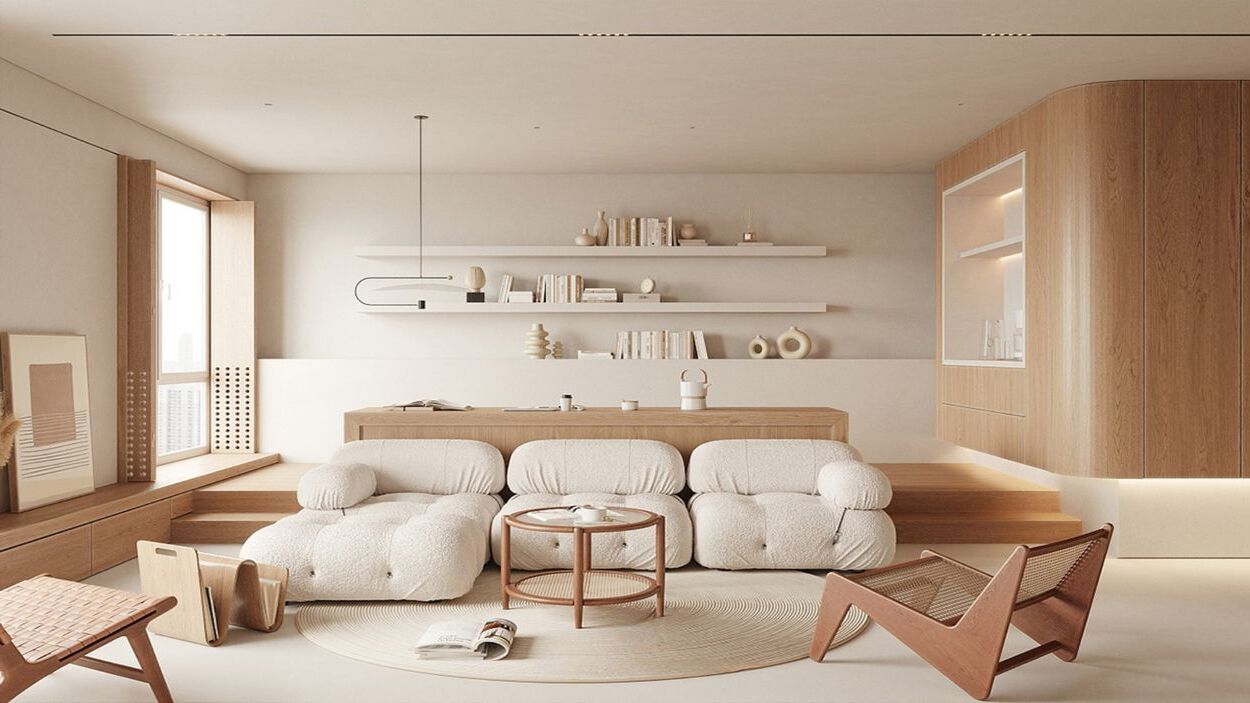
Minimalism isn't just about owning fewer things; it's a lifestyle that promotes intentional living. Minimalists focus on what truly matters, cutting out the excess to find clarity and purpose. Imagine a life with less clutter, fewer distractions, and more time for what you love. This approach can lead to greater happiness, reduced stress, and even financial freedom. Whether you're curious about how minimalism can impact your daily routine or looking for practical tips to start your journey, this blog post will provide valuable insights. Ready to simplify and enrich your life? Let's dive into the world of minimalism and discover its transformative power.
Key Takeaways:
- Embracing minimalism can reduce stress, promote financial freedom, and improve mental health by decluttering physical and digital spaces, leading to a simpler and more intentional lifestyle.
- Minimalism extends beyond possessions to design, fashion, sustainability, technology, and mental health, offering a holistic approach to living with intention and purpose.
What is Minimalism?
Minimalism is more than just a design trend. It's a lifestyle that emphasizes simplicity, clarity, and intentionality. Here are some intriguing facts about minimalism that might surprise you.
-
Minimalism originated as an art movement in the 1960s, focusing on simplicity and removing unnecessary elements.
-
The minimalist lifestyle encourages people to own fewer possessions, leading to less clutter and more mental clarity.
-
Minimalism isn't just about physical items; it also applies to digital spaces, like decluttering your email inbox.
Benefits of Minimalism
Living minimally can have profound effects on various aspects of life. Let's explore some of the benefits.
-
Minimalism can reduce stress by eliminating the chaos of excess belongings.
-
It promotes financial freedom by encouraging mindful spending and reducing unnecessary purchases.
-
Minimalist living can lead to better mental health by fostering a sense of control and peace.
Minimalism in Design
Minimalism isn't confined to lifestyle choices; it's also a popular design philosophy. Here's how it manifests in design.
-
Minimalist design often uses a lot of white space to create a clean, uncluttered look.
-
It focuses on functionality, ensuring that every element serves a purpose.
-
Minimalist design often employs a limited color palette, usually neutral tones.
Minimalism in Fashion
Fashion is another area where minimalism has made a significant impact. Let's look at how minimalism influences fashion.
-
Capsule wardrobes are a minimalist fashion trend, consisting of a small number of versatile pieces.
-
Minimalist fashion often emphasizes quality over quantity, focusing on timeless, durable items.
-
The minimalist approach to fashion can make getting dressed quicker and easier, reducing decision fatigue.
Minimalism and Sustainability
Minimalism and sustainability often go hand-in-hand. Here's why minimalism can be good for the planet.
-
Minimalism encourages buying fewer, higher-quality items, which can reduce waste.
-
It promotes the idea of reusing and repurposing items instead of constantly buying new ones.
-
Minimalist living can lead to a smaller carbon footprint by reducing consumption and waste.
Minimalism in Technology
Technology can also benefit from a minimalist approach. Let's see how minimalism applies to tech.
-
Minimalist technology focuses on user-friendly interfaces with fewer distractions.
-
It encourages the use of multi-functional devices to reduce the need for multiple gadgets.
-
Minimalist tech design often prioritizes battery life and efficiency over flashy features.
Minimalism and Mental Health
Minimalism can have a significant impact on mental well-being. Here are some ways it helps.
-
Decluttering physical spaces can lead to a clearer mind and reduced anxiety.
-
Minimalism encourages mindfulness, helping people focus on what truly matters in life.
Embracing Minimalism in Everyday Life
Minimalism isn't just about owning fewer things. It's about making room for what truly matters. By focusing on essentials, you can reduce stress, save money, and find more joy in simple pleasures. Think about your daily routine. Are there items or habits you can let go of? Start small. Maybe clear out a cluttered drawer or unsubscribe from unnecessary emails. Each step brings you closer to a more intentional life. Remember, minimalism looks different for everyone. It's not about living with nothing but about living with purpose. So, take a moment to reflect on what adds value to your life and what doesn't. Embrace the freedom that comes with less. You'll find that with fewer distractions, you can focus more on experiences, relationships, and personal growth. Minimalism is a journey worth taking.
Frequently Asked Questions
Was this page helpful?
Our commitment to delivering trustworthy and engaging content is at the heart of what we do. Each fact on our site is contributed by real users like you, bringing a wealth of diverse insights and information. To ensure the highest standards of accuracy and reliability, our dedicated editors meticulously review each submission. This process guarantees that the facts we share are not only fascinating but also credible. Trust in our commitment to quality and authenticity as you explore and learn with us.
